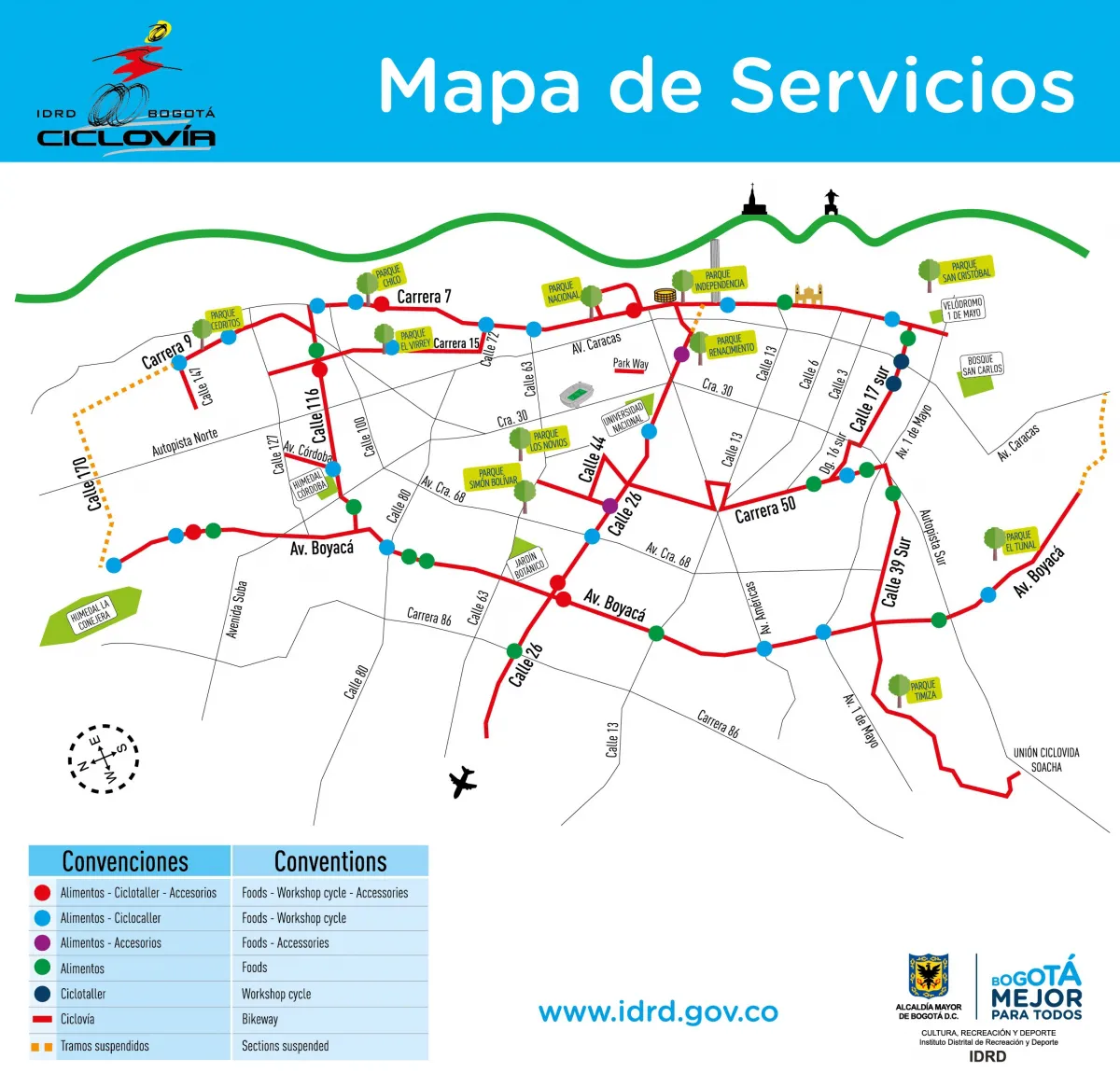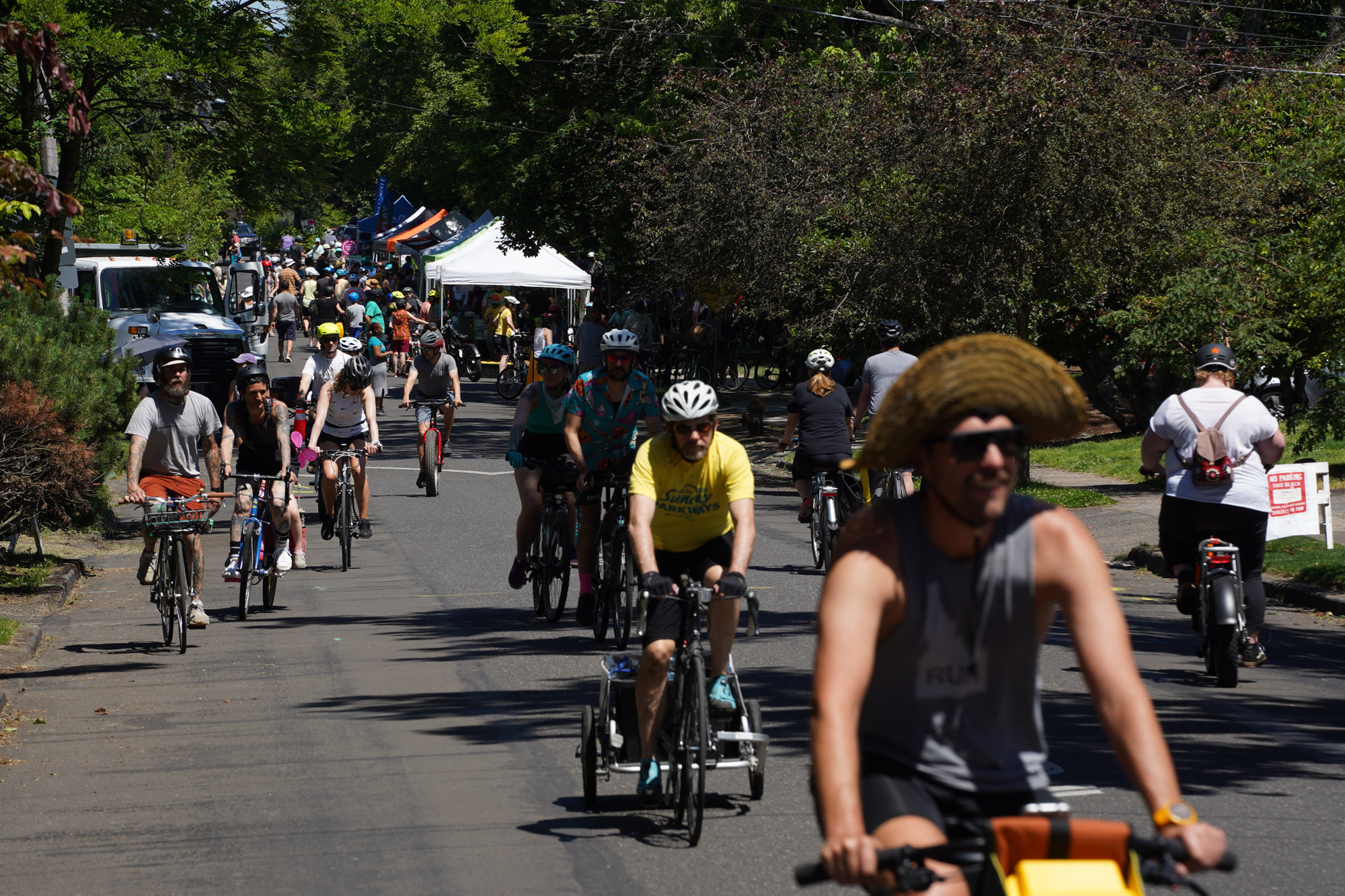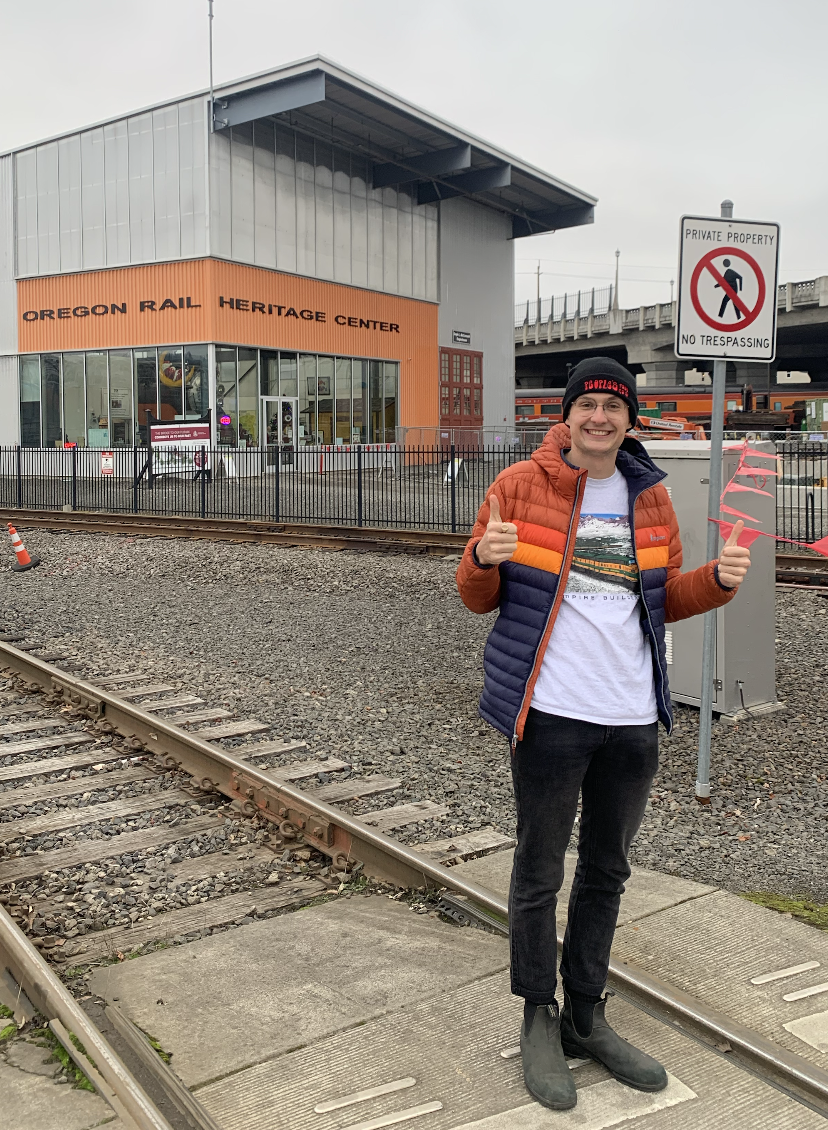This article was written by Portland resident and transportation advocate Andrew Lindstrom. This is a slightly edited version of the post that appeared earlier this week in the City Hikes blog.
The Portland Bureau of Transportation is preparing for this year’s Sunday Parkways — open streets events that were modeled after the “ciclovía” program (bike lane in Spanish) in Bogotá, Colombia. But although the events in Portland and Bogotá both happen on Sundays and involve the city shutting down certain streets to car traffic to make way for people on other modes, the similarities stop there.
Each Sunday in Bogotá, for the entire year, the city closes 75+ miles of streets for the ciclovía. In Portland, on the other hand, PBOT has recently downsized the program from five annual Sunday Parkways to just three. Throughout the three events in Portland this summer, the city will manage to close a total of 11.5 miles. Additionally, the kinds of streets that are part of these programs are very different. In Bogotá, the city opens up major city corridors to people outside of motor vehicles whereas Portland tends to focus the program on smaller neighborhood streets. In other words, the Portland events end up being pretty weak tea compared to the strong Bogotá brew.
But Sunday Parkways are still the marquee “carfree” event in the city of Portland, so I think they’re worth a closer look.
Portland Sunday Parkways is the Taco Bell of ciclovía programs.
Can a carfree event be transformative? In Bogotá, there is plenty of evidence that the ciclovía program has transformed the city: over one million people participate in it weekly! In Bogotá, major streets get closed and people flock to them. It’s impossible not to notice. In Portland, I wouldn’t even know they existed if I weren’t a transportation dork – and while perhaps the longer-tenured Portlanders feel otherwise, it feels like Sunday Parkways hasn’t really gotten the love it needs to thrive as an event. And considering that one event last year featured an angry man brandishing a gun, it’s safe to say there’s a ways to go Sunday Parkways has a transformative effect for the culture of roadway space in Portland.
The streets Bogotá shuts down for the ciclovía aren’t minor ones. Calle 26 is partially grade separated, and connects the central city to the airport. (A Portland equivalent would be something like 82nd Ave.) And that is exactly why it’s a great program. It gives the most important streets back to the people, once a week. In typical USA fashion, we have appropriated something really cool from Latin America and made it mediocre. Portland Sunday Parkways is the Taco Bell of ciclovía programs.

The goal of a ciclovía-style event is to give street space back to the public. If only a few miles of streets (none of them major) are shut to motor vehicles, is it even worth comparing Portland’s Sunday Parkways to Bogotá’s?
What’s the big deal?
The big deal is that Sunday Parkways’ goals are unclear, and I even think the events subtly reinforce car culture because they happen so infrequently. When PBOT is unwilling or unable to run the event more than three times a year, and when it happens only on neighborhood streets, it sends the message that cyclists (and pedestrians) don’t belong on major roads.
PBOT’s latest emphasis on Sunday Parkways as a way to “provide free, accessible, inclusive family-friendly activities in underserved communities” doesn’t make sense in the context of Bogotá-style ciclovía events, which are large enough to encompass the entire city (including previously-underserved neighborhoods). The event in Bogotá also has a static route that has been roughly the same since the 1970s. It’s confusing for everyone to change the streets that are part of the route, both motorists and participants. If Portland’s Sunday Parkways event covered more ground in the city, everyone could benefit, including people in underserved communities.
I’d also like to see PBOT focus more on the benefits of Sunday Parkways as a way to give back space in the streets to people biking and walking, but that goal seems like an afterthought. When cyclists, pedestrians, and non-automobile users are given space on the roads, it normalizes the idea that streets are for everyone and that they are a public space. We have the excellent Pedalpalooza rides to look forward to, but if PBOT got their act together we could have a truly transformative official event rather than something that simply pays lip service like our present program does.
What I would do
I’d like to propose a Bogotá-style plan, with static closures every Sunday during a specific time, on major or semi-major thoroughfares that are typically functionally closed to cyclists. Here’s a potential map for what it could look like:
It’s not a perfect map, and in a lot of ways it’s not as “radical” as Bogotá. But it would be a good place to start. SE Stark in particular is a street I would really love to see closed for a cycling event. It’s got it all – a mostly flat alignment (outside Mount Tabor), a good amount of smaller commercial areas (around 14th, 28th, and east of Tabor), and it’s also one the most dangerous streets in the city for pedestrians and cyclists east of I-205). There are also plenty of parallel streets that people can use if they want to avoid the event.
But the specific streets that close are less important to me than consistency and frequency. And it needs to happen weekly, year-round, rain or shine. Frankly, when we plan cycling events only in the summer, it reinforces the need for a car. Rain is a fact of life in Portland from October to May – if cycling is to be a fact of life as well, then cycling in the rain needs to be part of that.
We can have nice things too, but it takes a lot of work to get things done. Realistically, all we have to do in Portland to get a real ciclovía event is have visionary leadership and ample public pressure. Maybe don’t hold your breath on this, but you can start by attending the Sunday Parkway events that we do have and demanding more from your public officials. Ride your bike, take the bus, go on walks. If you want your city to be a better place, I think the first place to start is to engage with the city as a human being.




